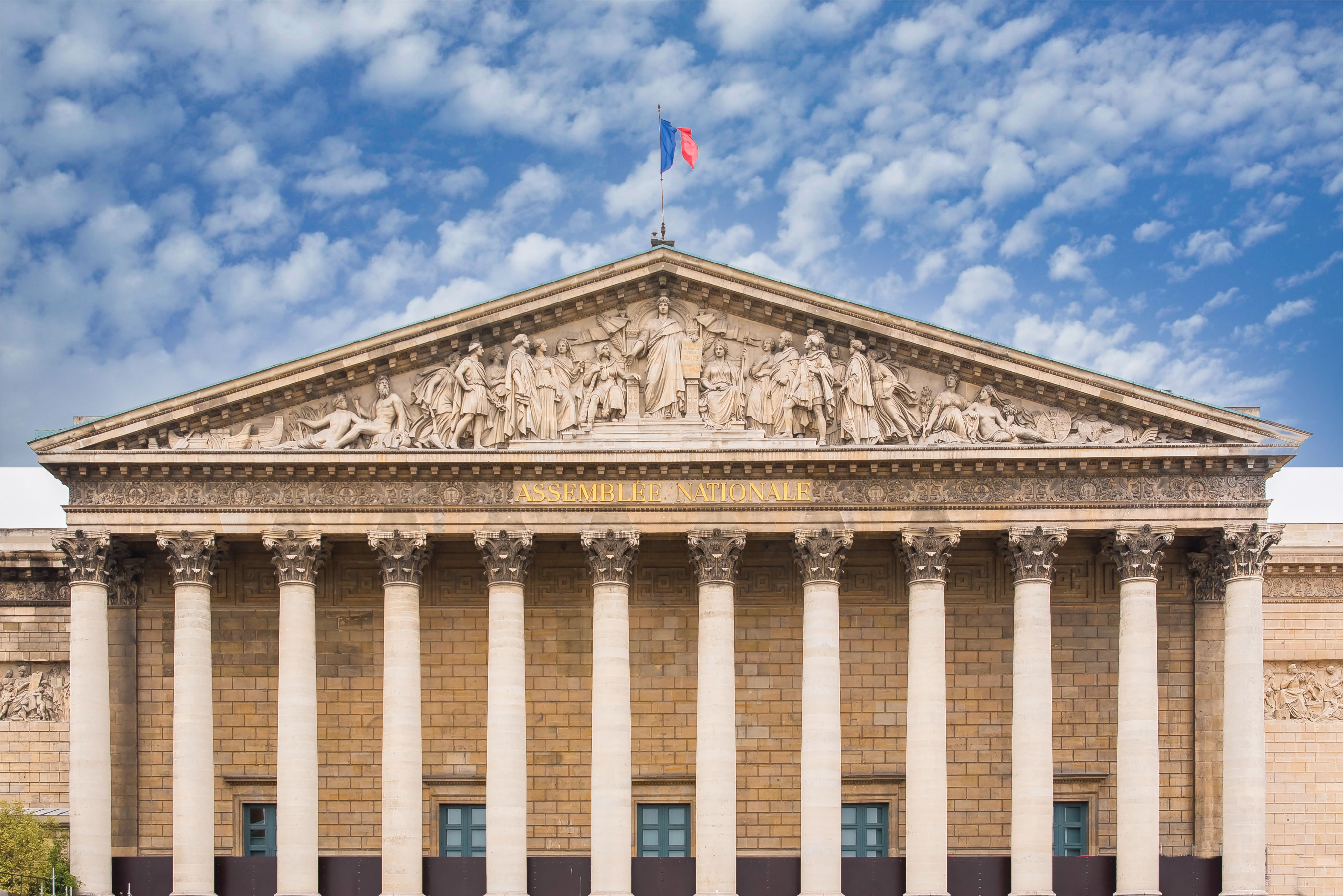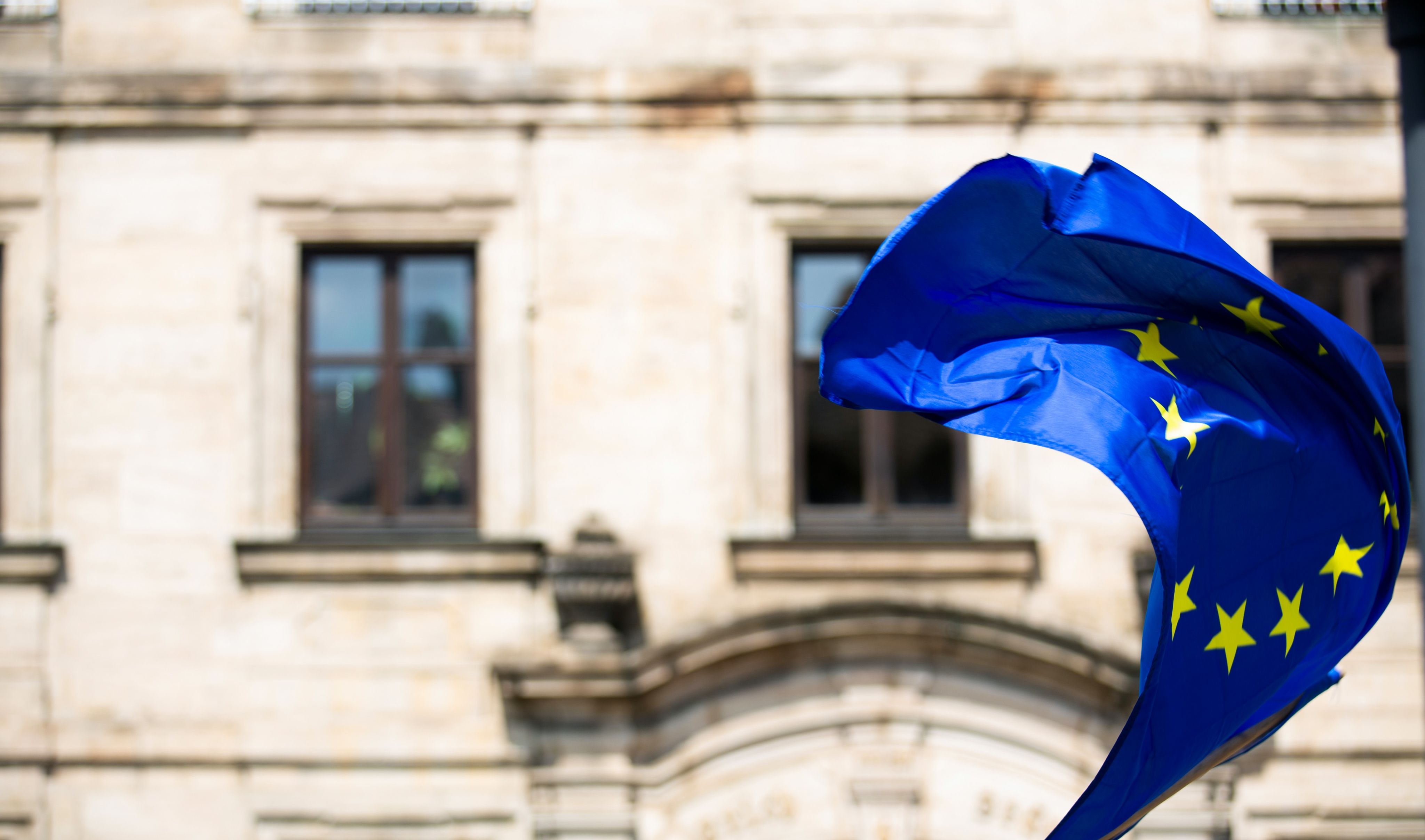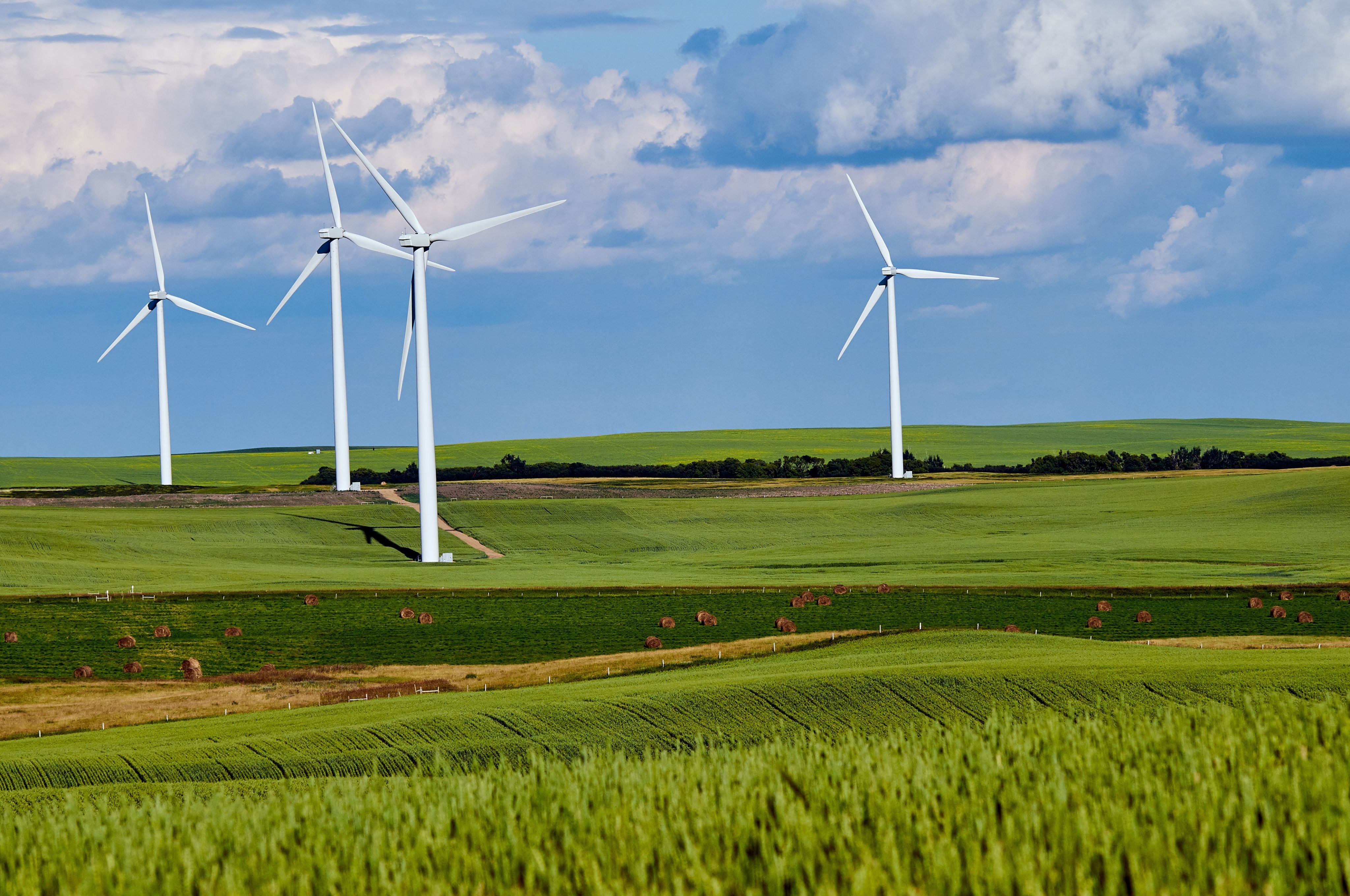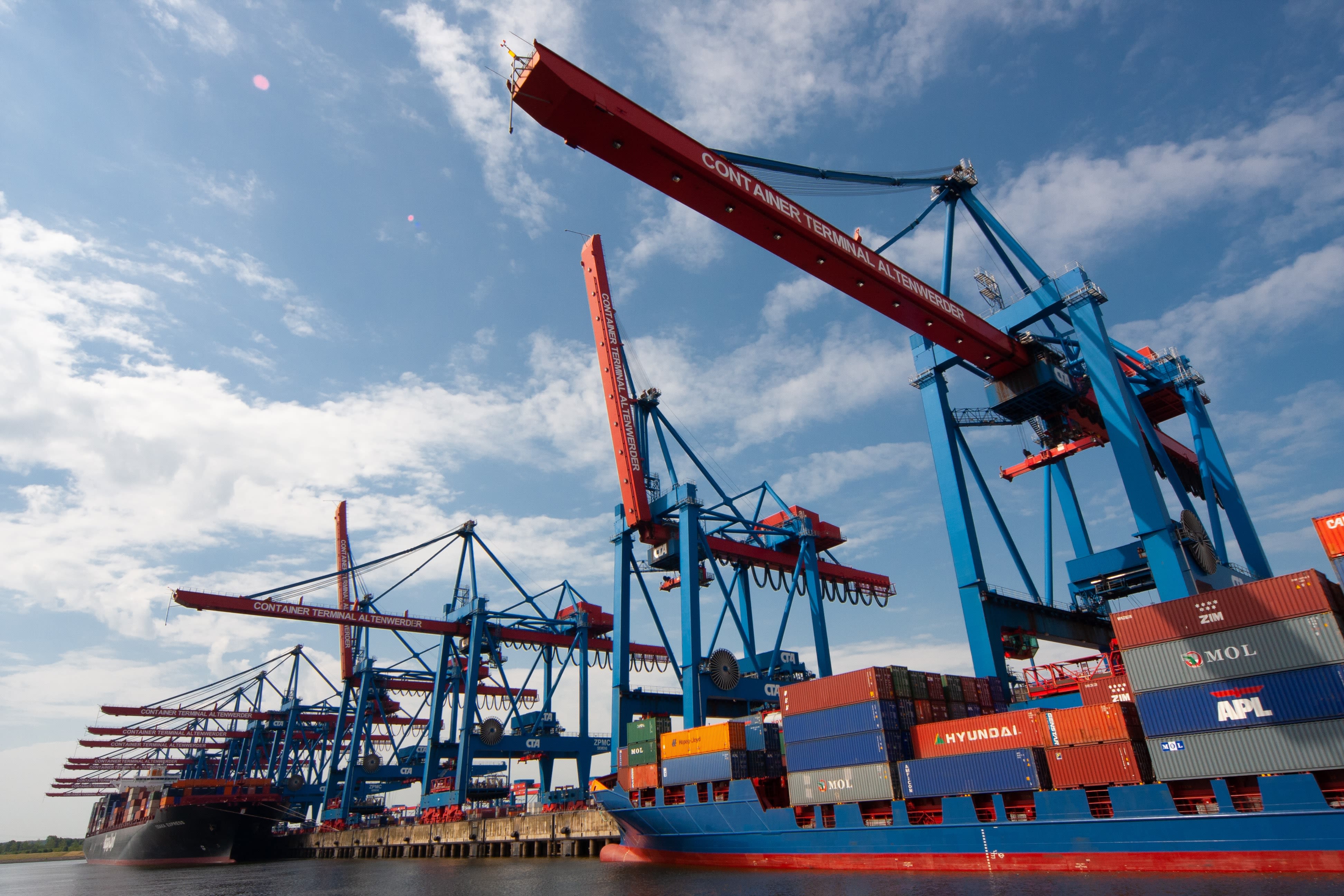The regulatory fallout as French elections fail to deliver a clear way forward
The regulatory fallout as French elections fail to deliver a clear way forward
With France's politics and relations with the EU uncertain after its main political parties failed to win an absolute majority in the second round of legislative elections, MLex journalists have been digging into the likelihood of long-term turbulence in the regulatory landscape.
Keep scrolling for ungated insights across competition, technology, finance, energy and trade, or start your 14-day free trial now for real-time access to our exclusive news and predictive analysis.
France’s political standoff heralds domestic battles at expense of European presence
By Jean Comte and Matthew Newman
EU’s green transition may be relatively unscathed from French election chaos
By Stefano Porciello
France is already hostile to EU’s free-trade agenda; expect that to deepen
By Oscar Pandiello
EU industrial policy set to lose its cheerleader as France turns inwards
By Luca Bertuzzi

France’s political standoff heralds domestic battles at expense of European presence
8 July 2024
By Jean Comte and Matthew Newman
France's politics and relations with the EU are headed for uncertainty after the country’s three main political parties failed to win an absolute majority after a second round of legislative elections yesterday.
The New Popular Front, a coalition of social democrats, far-left and ecologists hastily formed after President Emmanuel Macron called snap elections on June 9, secured 180 seats, more than any other group but far from the 289 needed for an absolute majority in the 577-seat National Assembly.
Despite Marine Le Pen’s far-right National Rally taking first place in June’s EU elections and a victory last week in the French first round, a “republican front” halted its march to an outright parliamentary majority. The National Rally and its allies came in third with 143 seats, trailing the 163 of Macron’s Ensemble group of centrist parties.
No majority for any bloc means French politics is in uncharted waters. Macron won’t decide quickly on a new prime minister, and reportedly will wait to see the National Assembly’s new structure. Incumbent Gabriel Attal submitted his resignation today, but Macron asked him to stay on and lead a caretaker government until a new leader is named.
A coalition that can survive a non-confidence vote must be formed to present a budget in September, Benjamin Morel, a politics professor at the University of Paris, told France Info radio today. France, with a public-sector deficit of 5.5 percent of gross domestic product, was one of seven countries that the European Commission put under its excessive-deficit procedure last month.
During the campaign, finance minister Bruno Le Maire warned that France could face a debt crisis if the spending programs of either the far right or the left-wing alliance were adopted.
Uncertainty stemming from the lack of majority could diminish France’s role in European policymaking. Macron’s standing at the EU level has been substantially weakened, with the prospect of weeks or months of inward-looking French politics that will distract Europe’s second-largest economy from EU affairs — just as European Commission President Ursula von der Leyen seeks approval from the European Parliament for a second term on July 16.
“The election results aren’t good for European affairs as Macron himself is weakened,” said Armin Steinbach, a non-resident fellow at economic think tank Bruegel and a law and economics professor at the HEC Paris business school. “No one knows whether Macron will be able to implement what he agrees at the EU on a national level.”
Coalition building
Modern France is used to being governed by a single political party, or at least like-minded ones in a tight grouping. It's not used to "grand coalitions" bringing together parties from various directions — unlike Germany, for example, where center-right Christian Democrats, left-wing Social Democrats, Free Democrat liberals and Greens have all participated in various coalitions with negotiated programs in recent years.
One scenario for French politics is a grand coalition of socialists, greens and center-left and right parties that would exclude the far-right National Rally and the far-left La France Insoumise, which is the largest party in the New Popular Front alliance.
Any agreement could quickly disintegrate, however, because the New Popular Front and Ensemble are divided over key issues such as revamping tax rules, canceling Macron’s pension reform and other hot-button social issues including immigration and security.
“There is very little party discipline in France, and it looks very unstable,” Adriaan Schout, a senior research fellow at Clingendael Institute in The Netherlands, told MLex. “The parties are coalitions of coalitions. It’s very difficult to have discipline in that kind of coalition.”
Another scenario is that the New Popular Front seeks to form a minority government on its own, but that formation would remain very fragile, and might not survive votes of no confidence.
Jean-Luc Mélenchon, leader of La France Insoumise, the coalition's biggest party, demanded that Macron appoint a prime minister from the New Popular Front, rejecting coalition talks with Ensemble. “The New Popular Front will apply its program, its entire program and nothing but its program,” he said last night.
A minority government could preside and negotiate over files on a case-by-case basis — not unlike the past two years, when Macron’s own party, Renaissance, was slightly short of an absolute majority and had to ask for support from right-of-center parties for every file.
Another problem with a leftist-led minority government is that voters could be frustrated that its program would be stymied by other parties. That could lead to the National Rally gaining more influence and popularity ahead of presidential elections in 2027.
Another possibility is that Macron could appoint a technocratic government. This “national” or “unity” government could be formed of diverse technical ministers representing a broad spectrum of parliament. It would be intended to serve for one year, after which Macron is allowed to call new legislative elections.
Bumpy ride
France's focus on domestic affairs could become relentless, with the far left seeking to overturn some of Macron’s key reforms, such as raising the pension age to 64, from 62. Other main priorities of the left include raising the minimum wage to 1,600 euros a month and capping the prices of essential goods such as food and fuel.
These measures would be applied “starting this summer” and would be carried out by decree and without a vote, Mélenchon said last night.
Precedent lies with Macron’s Renaissance, which, with a relative majority of 250 lawmakers, resorted to using Article 49.3 of the French constitution to force through legislation such as the pension reform, without a vote in the National Assembly. The votes provoked censure motions, which repeatedly failed.
Competition policies
The landscape looks unpredictable for competition policy. The New Popular Front has said it wants to “change European competition law in order to allow state monopolies." What that means in practice isn't clear, but the power sector could be in line — in particular over hydroelectric dams — where it could go further than current ambitions go.
France has a long-standing dispute with the European Commission over the maintenance of its hydroelectric dams, a crucial energy source for the country. The EU executive insists on open competitive tenders for maintenance contracts and capacity improvements. France has long argued that these contracts should be reserved to state-owned EDF, which should benefit from a carveout from competition rules.
All these measures would require lobbying at EU level to either change the rules or secure an opt-out for France.
The New Popular Front said in its program that it’s opposed to any privatization of the hydroelectric dams as well as the French national railway’s rail freight service.
The New Popular Front, the National Rally and Renaissance also promise a state-supported plan for reindustrialization, but their programs don’t provide enough details to determine whether that would fit in with EU rules on state aid.
The issue of stronger financial regulation is key for the New Popular Front, which has mentioned increased taxation of financial transactions, higher capital requirements for banks, and a ban on fossil-fuel financing in its program. None of this would sit easily with the traditionally pro-business Renaissance, while National Rally has lately tried to attract votes from the business world.
Technology, finance
Online platforms could get some kind of stricter scrutiny. Macron's Renaissance has pushed to ban under-15s from social networks right across the EU, echoing a French law that entered force last year.
This idea isn’t mentioned by any other party, but the New Popular Front agrees that there is a need to tackle the impact of screen time for children, and it wants to set up a special cross-ministerial committee. Such a move would lay the ground for the kind of cross-party momentum needed in a coalition of several parties.
The National Rally’s protectionist and nationalist impulses could find a berth in other political parties when it comes to curbing the market power of US tech giants.
For more than two years, for example, France has pushed for the inclusion of a sovereignty requirement in a cybersecurity certificate for cloud providers, called SecNumCloud, which is part of its national plan. France has sought to have the EU adopt sovereignty requirements — where cloud providers must have their headquarters and operations in an EU country to be eligible for the highest level of cybersecurity assurance.
Those proposed requirements have proved controversial, because they would prevent non-European cloud service providers such as Amazon, Microsoft and Google from attaining the same high levels of assurance certification as European ones. The issue will continue to be debated for months to come.

EU’s green transition may be relatively unscathed from French election chaos
8 July 2024
By Stefano Porciello
Sunday's surprise French election result looks to be good news for the wind power sector, which was facing the threat of a moratorium advocated by the far right and could instead now hope for a boost.
The expected winner, Rassemblement National, or National Rally, was relegated to third place after a week of tactical maneuvering, with the pro-green left-wing alliance of the New Popular Front emerging as the biggest group, but in a hung parliament.
The news also looks relatively positive for all those engaged in France's and Europe’s green transition, given that the left alliance and the current ruling group, Ensemble, together hold around two-thirds of seats in the new National Assembly.
Any relief looks like being fragile and temporary, however. No political party has the clout to rule the country, the building of a governing coalition looks extremely difficult, and any minority government looks likely to live under constant threat of a vote of no confidence. The National Rally can be expected to hammer continually at any ruling coalition and reorganize for possible new legislative elections in a year's time, or for presidential elections in 2027.
Should a left-wing government or a national unity government spanning from the center-right to the center-left be formed, France's stance on energy and climate policy at the EU level shouldn't see any major revolution, and chances are that the country's support for renewables could surprisingly have a boost.
France's role as an advocate for Europe’s decarbonization, clean electrification and re-industrialization is likely to be shielded from a major shakeup as things stand, though how temporary this could prove will only emerge over time.
Wind, nuclear, hydro
The New Popular Front campaigned to strengthen manufacturing in the French and European renewable-energy sector. Its program called for making France “the European leader in marine energies with offshore wind power and the development of tidal energy.”
At the center of the political spectrum, President Macron’s finance minister, Bruno Le Maire, has been an outspoken defender of the importance of decarbonized energy independence.
As France recently joined other countries to make the North Sea region “the world’s largest green energy power plant” thanks to offshore wind, and given the wide political support for renewables in the new parliament, wind turbine-makers can hope for positive political developments in Paris.
Other parts of the energy industry, such as the nuclear and hydropower sectors, may remain in the political quicksand, though, but this isn't necessarily bad news. Despite uncertainty, some predictions may pan out.
Even though some on the French left would like to end the country's pro-nuclear energy tradition, it seems unlikely that any major legal change will ever get passed in parliament. The center and the right are firmly pro-nuclear, and any anti-nuclear stance has virtually no chance of passing any formal vote.
A standstill is also likely to hit the longstanding issue of the French concessions granted to the state-owned energy giant Électricité de France on hydropower, which the European Commission suspects being in breach of EU competition rules.
Here, opposition to the privatization of the dams looks too strong for a solution to be reached any time soon as both the far right and the left oppose any changes.
Opposition
At an EU level, in environmental policy terms there no longer seems to be the short-term challenge of seeing a far-right minister sitting in the Council of the EU and working in opposition to proactive laws stemming from the European Green Deal.
But the long-term implications of a possible hung parliament in Paris shouldn't be underestimated, especially if the next French government fails to make the green transition acceptable to the population.
Meanwhile, the National Rally has 30 lawmakers in the European Parliament and will remain influential there; it may prove key in some signal regulatory battles — such as a fight set up last week by center-right lawmakers against the polluting-car ban, set for 2035.
Should the French far right not hold sway in a blocked parliament in Paris, they may try to win EU lawmaking battles in Strasbourg and Brussels and try to grab every chance for visibility by picking away at Brussels’ expensive green agenda.

France is already hostile to EU’s free-trade agenda; expect that to deepen
8 July 2024
By Oscar Pandiello
France's current political turmoil, whatever the next government's makeup, does not spell good news for free trade. But EU companies shouldn't expect any sharp change of direction in a French trade agenda already protectionist in spirit.
France has been a fervent advocate of the EU’s strategic autonomy, a broad concept that gained prominence in 2020 during the Covid pandemic. Originally focused on vaccines and medical devices, it has since expanded to include energy resources, microchips, key commodities and critical raw materials.
The concept is straightforward: EU nations should minimize reliance on trade, diversify trade partners, avoid dependence on geostrategic rivals such as Russia or China, and reshore production of key strategic goods.
If more protectionist political forces gain power in the new French government, as seems likely after this weekend's second round of national elections, free-trade advocates such as Germany, Ireland, Sweden and the Netherlands might feel impelled to take preventive action and impose their views within the EU.
But how far could they push without fracturing the already fragile consensus on the EU trade strategy?
Not-so-new protectionism
The New Popular Front has dashed the National Rally's expectations, becoming the largest party in the next National Assembly. The left-wing coalition will be the first party to take the floor for the formation of a new government, a difficult task given the fragmentation of the chamber, which offers a tight margin for like-minded political coalitions.
Both the New Popular Front and Marine Le Pen's National Rally, which have seen their political influence spike, have shown their willingness to push for a protectionist agenda.
But even French President Emmanuel Macron, who secured an unexpected second place in yesterday's elections with 168 seats, has shown little enthusiasm for free trade recently. Pressure from farm lobbies, in particular, has conditioned his position on a number of topics.
Macron has lobbied for mirror clauses in some EU trade-related laws, which de facto means asking third countries to match EU environmental standards as a necessary condition to let their products enter the bloc’s market. These clauses have been proposed for free-trade deals for farm goods, as seen in the stalled EU-Mercosur deal, but also for the import of recycled plastic packaging.
‘Put an end to FTAs’
As Macron’s Renaissance and Marine Le Pen’s National Rally are openly opposed to adopting the EU-Mercosur trade deal as it stands, should EU companies expect a different take from the New Popular Front?
The strong presence of the New Popular Front in the new National Assembly is not likely to have a short-term impact on EU trade policy as the coalition mainly focuses on internal matters for its top priorities: labor conditions, affordable housing and public services, among others.
But its approach to free trade might be problematic for EU companies in the long run. Its political program urges France to “put an end to free trade agreements” and “introduce ecological and social protectionism at Europe's borders.” When it comes to the EU-Mercosur deal, the left-wing coalition voices a call to “renounce the agreement and protect our farmers from unfair competition.”
The three main French political parties, thus, are committed to defending the farm lobby position on this topic, as they fear that signing trade agreements with agricultural superpowers might flood the EU market with cheap products.
Besides the Mercosur deal, EU-Canada trade relations could be deeply affected in coming months as the Comprehensive Economic and Trade Agreement, or CETA, which governs the trade partnership between the two, faces a key vote in the National Assembly, the lower chamber of the French parliament.
CETA partially entered into force seven years ago, bringing a zero-tariff regime and significantly boosting bilateral trade. But its full and complete application has yet to be ratified by EU member states.
After being rejected by the French Senate in March, the trade deal must go back to the National Assembly. Macron has tried to postpone voting on the agreement, as his Renaissance no longer has a majority in the chamber.
Rejection by just one EU country could lead to a definitive suspension of the trade agreement, meaning a major backlash for EU trade and its credibility with its international partners.
Reshoring industry
Paris is understood to have had a leading role in pushing for the EU's anti-subsidy probe into Chinese electric vehicles, seeing it as part of a broader effort to shield European strategic clean-technology industries from unfair Chinese competition.
Recently, the French government had pushed for a strong EU industrial strategy, aiming to switch the EU's role in the international markets from a buyer to a producer of key commodities in strategic sectors.
To push the "Buy European" strategy for cutting-edge and dual-use technologies, the new government will exploit the EU’s Net Zero Industry Act — legislation that aims to boost takeup of green technologies by simplifying and expediting permitting procedures. It also regulates the application of non-price criteria in renewable energy auctions and public procurement, further promoting green technologies in the EU.
This tendency matches with the EU’s economic security package, announced months ago by the European Commission to improve the bloc’s screening capacity for both inbound and outbound investments in critical sectors and the EU’s common framework for export control.
Difficult days ahead
Whatever the outcome of the political debates in France in the next few months, new ministers will be directly involved in trying to influence EU policymaking, maybe openly clashing with Macron on some key laws and undermining the French position with their EU partners.
Classic defenders of free trade, such as the Netherlands, Ireland and Sweden, are likely to be affected.
It seems clear that the free-trade agenda won’t be on the menu of the EU’s second-biggest economy. If the agenda is not only interrupted but reversed — as would be demonstrated by rejection of the CETA agreement — the implications for the EU as a whole could be far-reaching.

EU industrial policy set to lose its cheerleader as France turns inwards
8 July 2024
By Luca Bertuzzi
Over the past five years, France has shifted the narrative around the need for the EU to wield a more muscular industrial policy to strengthen Europe's technological sovereignty.
Precisely as economic competitiveness was becoming the dominant theme in Brussels, however, France’s uncertain electoral outcome might make the country turn inward, focusing on its internal problems and political squabbles related to uneasy government coalitions.
“France has been leading in trying to put Europe at the forefront of technological development, pushing for a strong innovation and industrial policy,” Marianne Tordeux, director of public affairs at industry association France Digitale, told MLex. “Now that leadership role might have to be picked up by other countries.”
Political leadership
France has been the most influential country at the EU level in the 2019-24 European Commission mandate. Then-popular president Emmanuel Macron was at the peak of his power five years ago and managed to impose the unknown Ursula von der Leyen as commission president.
Angela Merkel’s reign gave way to a litigious coalition government in Germany. Meanwhile, with the UK leaving the EU in disarray, the camp of the free-market economies lost its most prominent advocate.
The French narrative toward a more interventionist economic policy steadily gained ground, not least because it was in line with the spirit of the times: massive stimulus packages passed in the US and China, supply-chain shocks on vaccines and chips, and wars popping up on Europe’s doorstep.
As EU policymakers scrambled to face off one crisis after the other, the idea took root that, faced with geopolitical tensions and a technological race, Europe had to take matters into its own hands with a bold industrial strategy.
Enrico Letta’s internal market report and Mario Draghi's upcoming study on the competitiveness of the European economy both build on this assumption and were meant to provide the programmatic framework for the next term.
Yet, just as France was so close to making its dirigiste doctrine the dominant theme of EU policymaking, its hardly governable political situation is set to keep the French tied up in their domestic affairs.
Regardless of the government that might eventually emerge, it seems evident that France will be more absent and less attentive to European matters. In troubled waters, the EU appears doomed to lose its political helmsman.
The personal factor
There is still someone who might keep the flame of a bold industrial policy high in Brussels. Thierry Breton was the herald of ambitious industrial plans, with a mercurial personality and the hands-on approach of the chief executive who gets things done.
Leading the charge of an interventionist economic doctrine, Breton recurrently clashed with the so-called “friends of the single market,” those upholding the principle of free trade and open economies, including EU competition chief Margrethe Vestager.
The case of Fiona Scott Morton — the US academic forced to withdraw from her appointment last year as the EU’s chief economist for competition — was, in all respects, an attack on Vestager’s legacy and an obituary to her political career, clearly showing who emerged as the ultimate winner.
Breton was probably the most influential commissioner of the last college, making everyone forget that the notion of “strategic autonomy” used to have an “open” attribute to it.
While Macron has already expressed his support for Breton to be reappointed, possibly as executive vice-president for industrial policy and economic security, a second term for the French commissioner is still far from certain.
As a coalition government seems the only way to secure a majority in a French parliament divided into three roughly equal and hardly compatible blocs, the partition of political posts will be crucial to reaching an uneasy agreement. It is unclear whether the commissioner's role will enter this equation.
Von der Leyen might also try to take revenge on Breton, who tried to undermine her candidacy by making political hay over “PieperGate” — controversy over her appointment in April of Markus Pieper, a lawmaker from her own political group, as a well-paid EU envoy.
Breton made a few enemies in Brussels, for instance, by pushing sovereignty requirements in a cloud-certification scheme, or proposing to force digital platforms to pay telecom companies for their infrastructure.
European commissioners need to be confirmed by the European Parliament following a hearing. Last time, the initial French nominee, Sylvie Goulard, did not make the cut. Breton’s audition will undoubtedly be one to watch.
A matter of money
The French vision of grandeur always runs the risk of proving impractical, and Breton’s pet projects have been no exception. Over and over again, the same problem caught up with all his ideas: lack of money.
The most telling case was the Chips Act, the EU’s response to the global supply crunch of semiconductors. Without common financial resources, the approach was to provide a legal framework for EU countries to subsidize mega fabs, as chip factories are known.
The result was that Intel and TSMC decided to build chip plants in Germany, not France, because only countries with the deepest pockets can reap the benefits of a relaxation of EU’s state aid rules.
Still, as the US Congress has recently shown, increasing public spending is usually one of the few things that brings everyone together in times of stark political divisions.
“Regardless of the political color, industrial policy is being used to buy out discontent as a substitute for more politically painful reforms like the one in the labor market,” said Niclas Poitiers, a research fellow at the think tank Bruegel.
But with the deficit at 5.5 percent of GDP, the commission’s excessive deficit procedure under way, and French state bonds on the special watchlist of credit rating agencies, France’s attempts to test the boundaries of its fiscal position might trigger financial instability across the entire EU.
The political stalemate and financial restraints bear the question of what an interventionist economic policy would look like if the government is unable or unwilling to intervene.
As usual, when France cannot achieve its ambitions on its own, it channels them via the EU. But when Breton floated the idea of the European Sovereignty Fund financed with joint debt, the answer was an abrupt no.
The only instance when Germany and the other “frugal” countries agreed to joint borrowing at the EU level was with the stimulus package intended to recover the European economies from Covid-19, and it took Merkel plenty of political capital to pull that off.
Her successor as German Chancellor, Olaf Scholz, has shown less appetite for repeating such an experiment. While negotiations on Eurobonds to finance an industrial defense strategy are advanced, the rise of pro-Putin forces in France’s extreme left and right might endanger the talks.
In a sense, the EU’s industrial approach is a major showcase of the limitations of the European project, which in essence is based on France providing the political vision and Germany supplying the financial backing as the main net contributor to the common budget.
Thus, the primary political battle for the future of the EU’s industrial policy will not be so much about the new commission’s leadership and agenda, but about the EU budget that must be in place by 2027.
“Europe is at a crossroads: does it want to have common ambitions at the industrial, technological and defense level?” asks Georg Riekeles, an associate director at the European Policy Centre think tank. “History is accelerating.”
Much of that history is bound to be written in Paris.
For real-time access to exclusive news and in-depth analysis from our specialist journalists in Europe and around the globe, start your instant free trial now.


